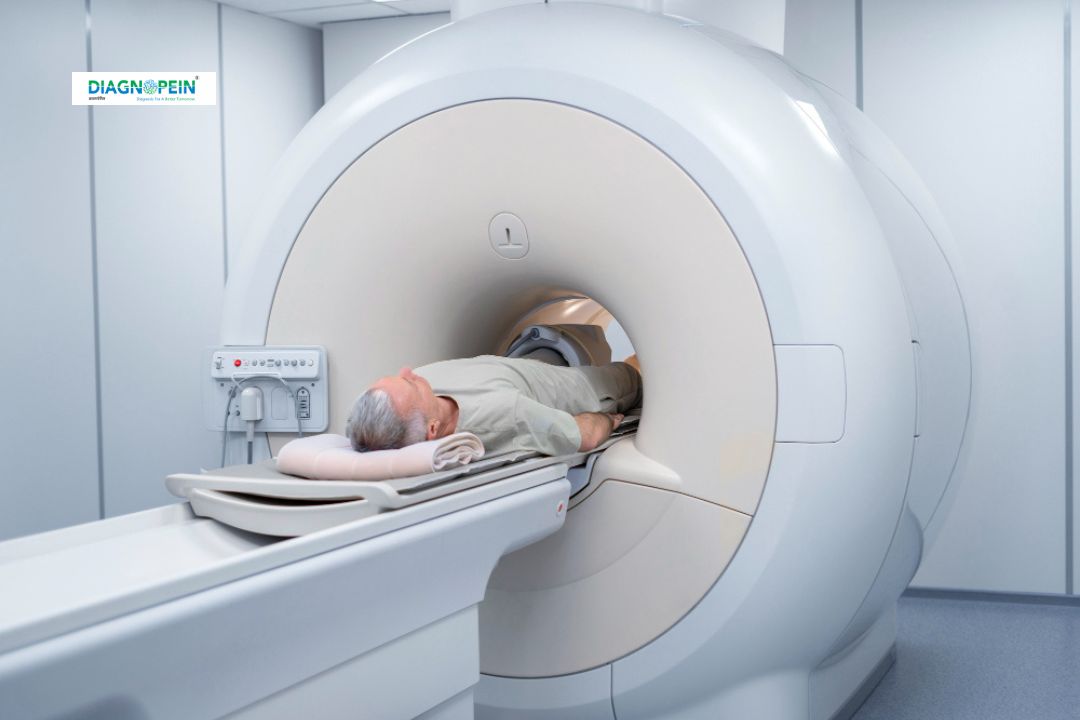Why MRI Angiography is Important
MRI Angiography plays a crucial role in detecting diseases before they become life-threatening. Traditional angiography requires inserting catheters into the vessels, which can be uncomfortable and carry minor risks. In contrast, MRA provides high-quality images without radiation exposure or catheters, making it a safer and faster diagnostic option.
It is especially valuable in diagnosing:
-
Brain aneurysms and stroke risk
-
Carotid artery narrowing
-
Aortic diseases and dissections
-
Peripheral artery disease (PAD)
-
Blood flow obstructions and malformations
-
Renal artery conditions causing hypertension
For patients with chronic conditions like diabetes, hypertension, or atherosclerosis, MRI Angiography allows regular vascular monitoring to prevent complications such as heart attack or stroke. At Diagnopein, our experts recommend this test based on medical history and symptoms for optimal health outcomes.
How MRI Angiography is Done
The procedure is completely non-invasive and painless. The patient is asked to lie still inside the MRI scanner. Depending on the type of study, a contrast agent like gadolinium may be injected into a vein to highlight the blood vessels more clearly. The scanner then uses magnetic fields and radio waves to capture detailed cross-sectional images, which are processed into 3D visuals by computer software.
A typical MRI Angiography takes 30 to 60 minutes, and patients can resume normal activities soon after the scan. The radiologist reviews the images and sends a report to the referring doctor for further diagnosis or treatment planning.
Preparations may include:
-
Fasting for 4–6 hours if contrast is used
-
Removing any metal objects or jewelry
-
Informing the technologist about pregnancy, implants, or any metal fragments in the body
Diagnopein ensures utmost patient safety and comfort during the scan. Our MRI suites are designed for low noise and quick imaging, providing a smooth diagnostic experience.
Key Parameters & Benefits of MRI Angiography
MRI Angiography offers several diagnostic advantages:
-
Non-invasive and radiation-free: No catheters or X-rays required.
-
High-resolution images: Accurately depicts both arteries and veins.
-
Detects subtle abnormalities: Helps spot minor changes in vessel walls or blood flow patterns.
-
Functional assessment: Evaluates how well blood circulates through various organs.
-
Safe for most patients: Especially suitable for those allergic to iodine-based contrast media.
Important Parameters Measured:
-
Vessel lumen size and morphology
-
Blood flow direction and velocity
-
Degree of vessel narrowing (stenosis)
-
Presence of clots or aneurysms
-
Perfusion data for tissues and organs
These parameters support precise assessments for cardiovascular planning and vascular surgeries.
Diagnopein’s MRI Angiography services are designed with cutting-edge technology, expert radiologists, and a patient-centered approach. Whether for preventive screening or advanced diagnostic evaluation, we provide accurate, fast, and detailed vascular imaging to empower better clinical decisions.









